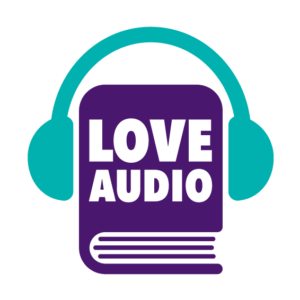The business of books: Only connect

At the launch of BookMachine’s Snapshots III I kicked off the talks by raining hard on the book industry parade. (Sorry.)
While I was on holiday in Dorset last week I wandered into a charity shop in a pretty market town and remarked on the number of books they had crammed onto their shelves. The woman behind the counter said wearily: ‘We’re not taking any more books. Everybody’s getting rid of them and nobody wants them.’
She didn’t know I was a book person. She had no idea she’d just delivered a punch to my gut. It’s not the sort of thing people in my world, and my social media bubble, tend to say. But it is of course true, or at least there’s truth in it.
As publishers, we spend our time with people who love and appreciate books. This is NOT THE REAL WORLD. For many people in this country books are an outdated technology. An irrelevance.
The Reading Agency reported last year that:
- 44% of of young people aged 16-24 don’t read at all for pleasure (for older adults, that figure is 36%)
- Only 26% of 10-year-olds say they like reading
And for an industry that makes its money from the sale of books it’s a perfect storm because, as fewer people want to buy books, more books are being published than ever before at lower prices than ever before.
So what’s the answer? Well, there’s no one answer. There never is. But we can find AN answer, I believe, in the creating of connection.
We already know that for many readers a book is interesting only when it’s connected to something else, something beyond the book, that has meaning for them. If they love Bake-Off, they’ll buy the book. If they’re a devoted fan of the YouTuber of the moment they’ll queue up for a signed copy, if they’re at an event with a great speaker, they’ll buy the book at the back of the room, if they’re in a book club they’ll buy the book they’re discussing: they need a reason, they need a connection.
When we write and publish today, we’re engaging in a battle for attention that’s more sophisticated and segmented than ever before. The people who really get this are the platform builders like Pat Flynn, Seth Godin, Jeff Goins, Joanna Penn, Hugh Howey, Denise Duffield-Thomas – and many of these are indie authors because they want control and they can reach their people directly. They have podcasts, blogs, YouTube channels, businesses: they have fans and/or customers instead of a sales force, and their book reaches new readers who become new fans and/or customers. It’s the attention they’re monetising – for many of them the revenues from the book itself are just a side benefit.
When rapper Akala spoke at Futurebook last year, revealing that his self-published books outsell CDs at his gigs, he asked ‘Why would I need a publisher? I have my own customer base.’
The good news is that books have an irreplaceable role in this new online/offline economy of connection and attention, but we have reached a tipping point: readers need a reason to read them. They need meaningful context. And the most powerful reason is always human connection – directly with the author, or with other people who’ve read and loved the book. Which means that publishers need to find ways to support authors to find their tribe and build their platform.
If we don’t respond to that challenge, if we don’t recognise that we’re in the business of making people care and connecting them, we’re simply adding to an undifferentiated pile of books that nobody has a reason to read. We also risk being left with a world in which only celebrities or business-savvy authorpreneurs can succeed in the book market.
Publishers have traditionally thought of themselves as gatekeepers, but once the walls have come down it’s a bit pointless continuing to stand beside the gate. And, even worse, if you insist on standing there you’re going to miss the party that’s going on inside.
Maybe a better metaphor for our future is as table hosts. Publishers don’t own the venue any more, it’s not even our party, but we CAN host part of it: we can lead the conversation in our area, give a voice and a platform to people with something interesting to say, we can make ours the table everyone wants to come to, where the best conversations happen and the most interesting connections are made. We can be where the party is.
And that’s much more fun than guarding the gate, right?






